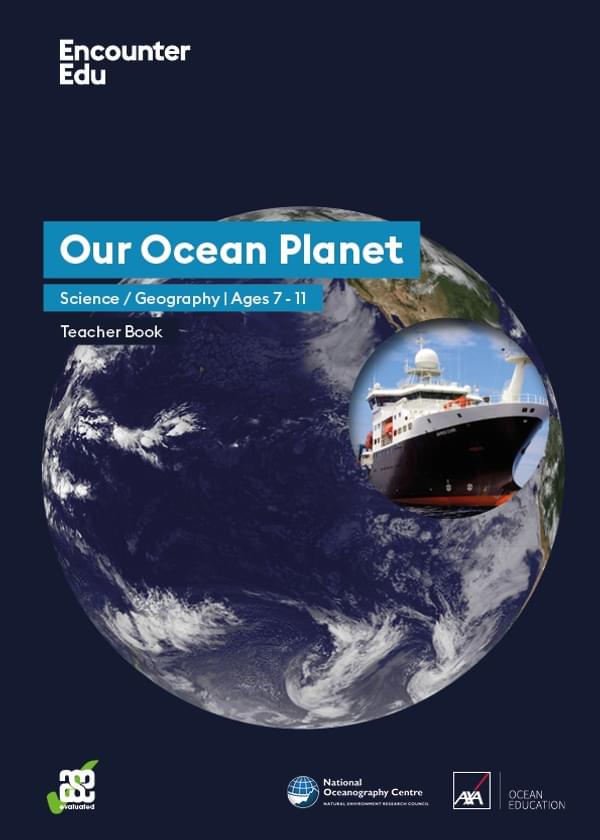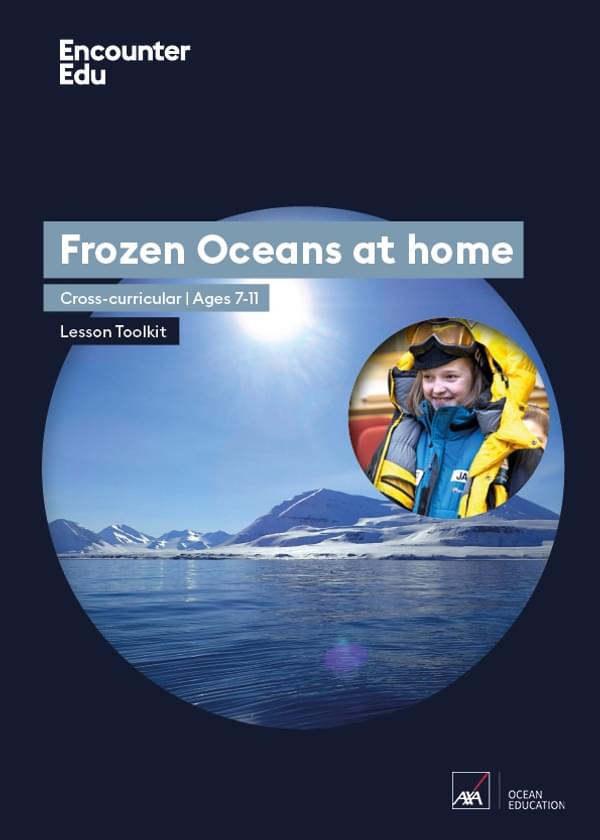How to develop literacy in science
This Subject Update suggests three strategies to help students develop their literacy skills through science.
- Sharing: make it clear that a good scientist is a good communicator
- Encouraging: plan extended writing activities
- Assessment: include literacy in your formative and summative assessments for science
Strategy: Sharing
Find a topical or relevant scientific story in the press or from guest scientists featured in the Our Ocean Planet resource (see literacy resources at the end of this Subject Update for links to relevant websites).
Write a few lines about the discovery in a professional way, and then write a poor version.
Ask students to read them.Ask questions like:
- Which one do they trust more?
- What might happen if the poor one was published in a newspaper?
Use this to make explicit links between effective communication and being a good scientist.
Strategy: Encouraging
Regularly ask students to do extended writing in science: but not just lab reports, allow them to do different types of writing including journalism, diary entries, poetry and creative writing. These are some examples for Our Ocean Planet:
- Lesson 2: students could write poetry about marine habitats.
- Lesson 3: students could imagine they were one of the organisms and write a diary entry for their day, e.g. ‘A day in the life of a cuttlefish’.
- Lesson 8: students could write a story about sponges trying to fit in with other types of organisms.
Strategy: Assessment
For formative assessment, set one science target and one literacy target. If you’re setting more formal exams, include extended answer questions of up to four marks.
An example can be found in Lesson 6 The Arctic Ocean and the water cycle, from Our Ocean Planet.
Marks: 1-2
Literacy:
- Some spelling errors
- Capitals and full stops often not used correctly
- The answer has little organisation
- Few scientific words used
Content:
- The idea that there is water in the sea, rivers and lakes and in the sky
- The idea that water moves in a cycle between these areas
Marks: 3-4
Literacy:
- Few spelling errors
- Capitals and full stops are used correctly
- The answer is well organised
- Many scientific words are used
Content:
- The idea that water moves between the sea and sky by evaporation when it is warm
- The idea that water forms clouds as it rises and cools down
- The idea that water returns to the ground in precipitation and the sea as run off and underground
Make your own science and literacy mark scheme
Here are some further suggestions and a template for creating your own mark scheme.
Ages 7-9
- Explain why a dolphin isn’t a fish
- Describe how plants produce seeds
- Describe how a deciduous tree changes over a year
- Describe what happens to a puddle when the sun comes out
Ages 9-11
- Explain how penguins’ thick downy layer evolved
- Describe the life cycle of a human being
- Describe the difference between the life cycle of a bird and an amphibian
- Describe what causes night and day
- Describe the job of blood in our bodies and how it is moved around
To create a mark scheme, use the template below. The literacy stays constant but you can change the content based on your question.
Marks: 1-2
Literacy:
- Some spelling errors
- Capitals and full stops often not used correctly
- The answer has little organisation
- Few scientific words used
Marks: 3-4
Literacy:
- Few spelling errors
- Capital and full stops used correctly
- The answer is well organised
- Many scientific words are used
Content for 1-2 marks should show that students have some basic understanding, i.e. they give a partial description or explanation, or they may have made a key error. Content for 3-4 marks should show that students have a complete understanding, i.e. they give full descriptions or explanations without major errors.
Our guest scientists
Dr Ceri Lewis, Lecturer in Marine Biology, University of Exeter, biosciences.exeter.ac.uk/news
Dr Helen Findlay, Biological Oceanographer, Plymouth Marine Laboratories, pml.ac.uk/news
Dr Penny Holliday, Lead Scientist, National Oceanographic Centre, noc.ac.uk/news
Prof Alex Rogers, Professor of Conservation Biology, University of Oxford, zoo.ox.ac.uk/news
Dr Mark Brandon, Reader in Polar Oceanography, the Open University, open.ac.uk/science/main
Dr Lucy Quinn, Zoological Research Assistant, British Antarctic Survey, bas.ac.uk/media
Anjani Ganase, Coral reef PhD student, University of Queensland, Australia, gci.uq.edu.au/latest-news

Science / Geography | Ages 7-11
Our Ocean Planet
Our Ocean Planet Science Geography ages 7-11 unit is a KS2 teacher resource. Students discover marine topics across both the UK and globally, developing ocean literacy.
